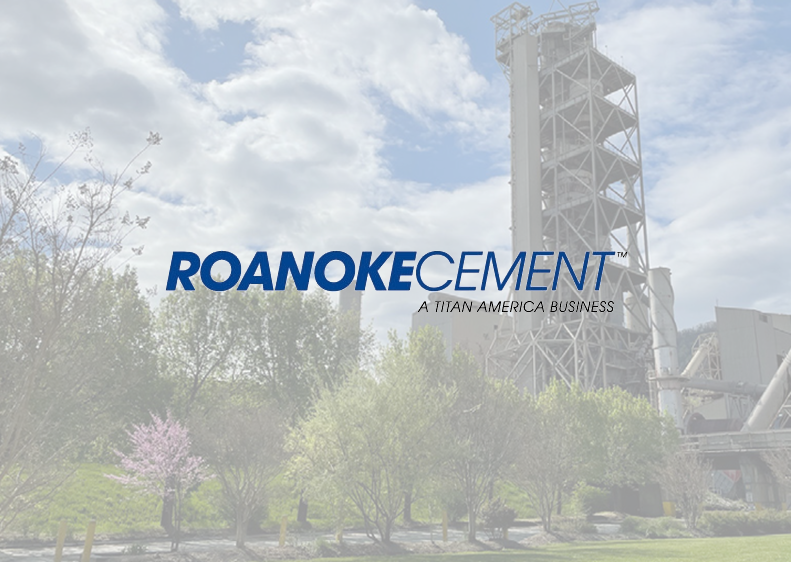Roanoke Cement Co., A Titan America Company, is making progress across clean manufacturing practices.
Roanoke Cement Co., A Titan America Company, is improving its carbon footprint by reducing electrical
energy consumption and materials it sends to landfills.
Sustainability Spotlight: Roanoke Cement Co., A Titan America Company
PCA member Roanoke Cement Co., A Titan America Company, is making progress across clean
manufacturing practices. Between 2016 and 2021, the company reduced greenhouse gas emissions by
7.5%, cut energy demand by 12%, and diverted nearly 95% of its solid waste from landfills.
To minimize its carbon footprint and impact on the environment, Roanoke Cement Company (RCC) has
worked to prioritize energy-savings and waste minimization. The company is working to meet the
environmental benchmarks developed through the PCA Roadmap to Carbon Neutrality and leveraging
partnerships with organizations such as EPA Energy Star, ISO 50001 Energy Management, and Green
Business Certifications Inc. (GBCI) True Zero Waste.
RCC’s energy-efficiency commitments have earned the company 16 consecutive EPA ENERGY STAR®
certifications. Additionally, the Roanoke plant is one of only two cement plants in the country to meet
the ISO 50001 Energy Management standard— the other being its sister plant— which requires a
rigorous process of developing data-informed energy efficiency policies and targets for continual energy
management improvement. These efforts have reduced plant energy demand by 12%, not only
improving the plant’s energy efficiency but easing pressure on Virginia’s electrical grid.
In addition to high energy savings, RCC is recognized for its waste management practices, earning a Gold
Zero Waste standard in GBCI’s Total Resource Use and Efficiency (TRUE) rating system. By recycling on-
site waste like kiln dust and pallets, RCC diverts approximately 94.7% of the solid waste it generates
from landfills.
RCC is also committed to reducing its carbon footprint through the cement production process. The
Roanoke plant has completely transitioned from the production of standard portland cement to Type IL
portland-limestone cement (PLC), which has an even lower carbon footprint than standard cement.
Through diligent energy management and conversion to lower-carbon Type IL blends, RCC saw a 7.5%
reduction in gross kilograms of CO 2 per metric ton of cementitious product.
“Roanoke is committed to implementing energy management and emission-reduction solutions that
further our company environmental goals and align with PCA’s guidance for the broader industry,” said
Bill Zarkalis, CEO of Roanoke Cement Company. "We are dedicated to shaping a greener future, where
our commitment to sustainability not only strengthens our local communities, but also contributes to
the well-being of our planet.”
By prioritizing electrical energy savings and greenhouse gas emissions reduction through PLC
production, RCC remains dedicated to spearheading sustainability solutions throughout the cement
production process. RCC exemplifies the commitment needed to address climate change and meet the
industry’s goal of carbon neutrality.

